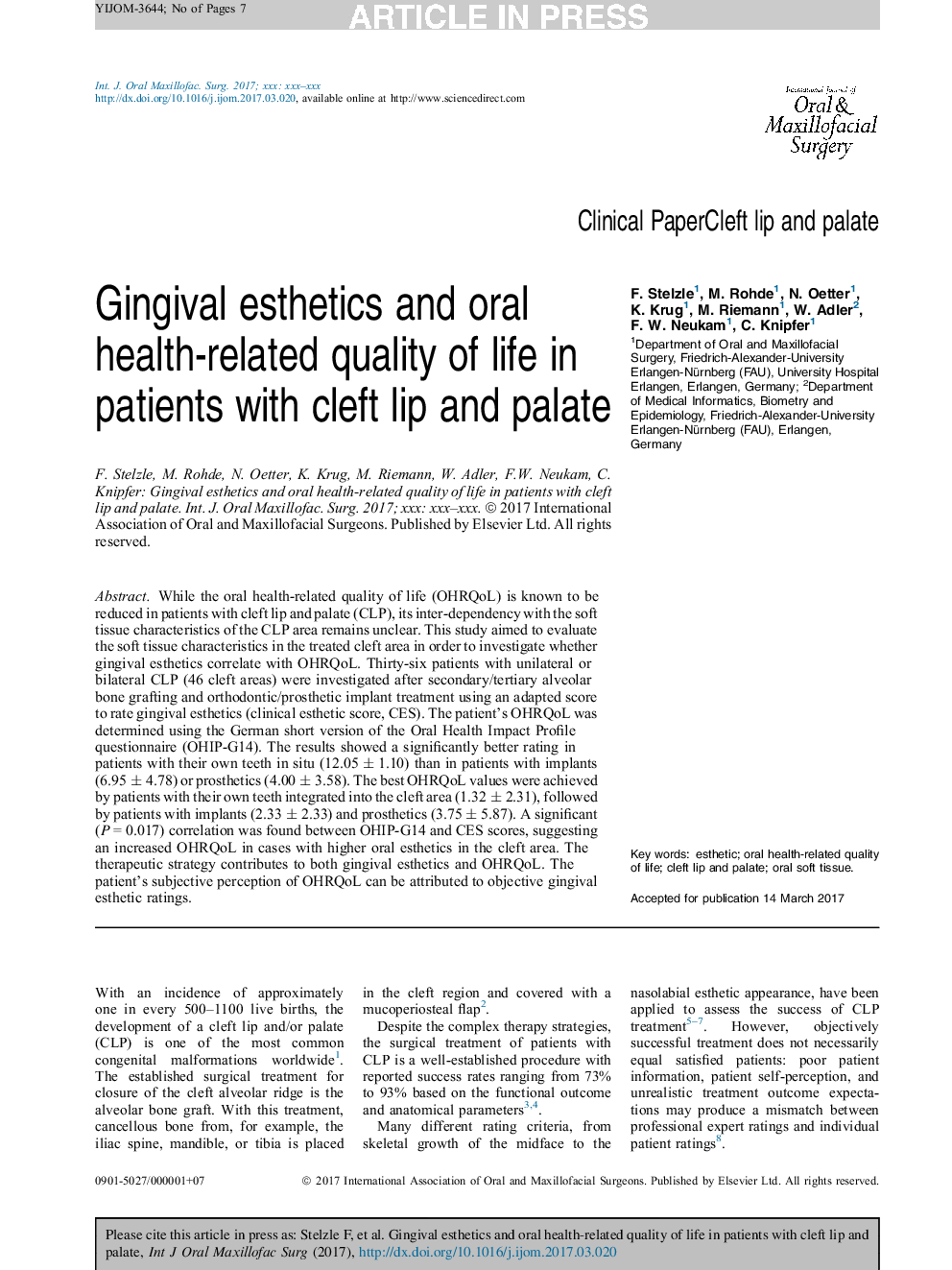| Article ID | Journal | Published Year | Pages | File Type |
|---|---|---|---|---|
| 5638847 | International Journal of Oral and Maxillofacial Surgery | 2017 | 7 Pages |
Abstract
While the oral health-related quality of life (OHRQoL) is known to be reduced in patients with cleft lip and palate (CLP), its inter-dependency with the soft tissue characteristics of the CLP area remains unclear. This study aimed to evaluate the soft tissue characteristics in the treated cleft area in order to investigate whether gingival esthetics correlate with OHRQoL. Thirty-six patients with unilateral or bilateral CLP (46 cleft areas) were investigated after secondary/tertiary alveolar bone grafting and orthodontic/prosthetic implant treatment using an adapted score to rate gingival esthetics (clinical esthetic score, CES). The patient's OHRQoL was determined using the German short version of the Oral Health Impact Profile questionnaire (OHIP-G14). The results showed a significantly better rating in patients with their own teeth in situ (12.05 ± 1.10) than in patients with implants (6.95 ± 4.78) or prosthetics (4.00 ± 3.58). The best OHRQoL values were achieved by patients with their own teeth integrated into the cleft area (1.32 ± 2.31), followed by patients with implants (2.33 ± 2.33) and prosthetics (3.75 ± 5.87). A significant (P = 0.017) correlation was found between OHIP-G14 and CES scores, suggesting an increased OHRQoL in cases with higher oral esthetics in the cleft area. The therapeutic strategy contributes to both gingival esthetics and OHRQoL. The patient's subjective perception of OHRQoL can be attributed to objective gingival esthetic ratings.
Related Topics
Health Sciences
Medicine and Dentistry
Dentistry, Oral Surgery and Medicine
Authors
F. Stelzle, M. Rohde, N. Oetter, K. Krug, M. Riemann, W. Adler, F.W. Neukam, C. Knipfer,
